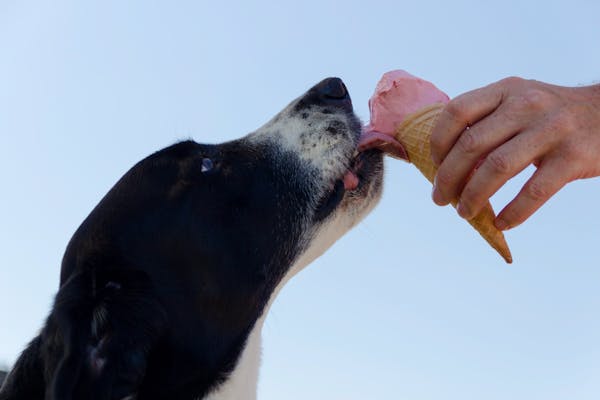[ad_1]
In “Power Players,” adjust makers in the vogue sector inform Bustle how they are pushing boundaries and transferring the culture forward, regardless of whether they’re advocating for sustainability, bringing much more inclusivity to the runway, or earning strides in technological innovation and innovation. Here, vogue educator Kimberly Jenkins discusses diversity and social justice in the vogue marketplace and academia, and how considerably we nevertheless have to go.
Kimberly Jenkins has been at the forefront of variety, equity, and inclusion in manner academia for practically a ten years. Possessing taught at establishments such as Pratt Institute, Parsons College of Structure, and additional, she has served on advisory boards, moderated panels, and facilitated conferences — all all over the topics of race, social justice, and their romantic relationship to style.
Just after her “Fashion and Race” class at Parsons commenced racking up a waitlist of students each semester, Jenkins made the decision to start the Style and Race Database. The world-wide learning platform contains applications like a directory of trend professionals and a library of textbooks, documentaries, podcasts, and articles that take a look at manner via the lens of race and lifestyle.
But Jenkins would like to choose her awareness exterior of the classroom, which is what led to her most up-to-date partnership with Tommy Hilfiger. Jointly, they established a podcast titled “The Invisible Seam: Unsung Stories of Black Society and Style,” which characteristics powerhouses like celebrity stylist Regulation Roach, Brandice Daniel of Harlem’s Manner Row, and a great number of students.
Forward, Jenkins speaks with Bustle about her teachings and what it truly implies to decolonize fashion.
What is the variance in between variety and inclusion in vogue or decolonization and liberation?
Variety is type of the tolerance of diversity — it really is a sprinkling of it, it really is in moderation. Like having a fuller sized, curvy design on the runway just about every now and then to make a statement, but the garments they are providing and the designs that they’re seriously inserting a premium advertisement on do not glimpse nearly anything like that.
When we’re speaking about decolonization and liberation, then we’re seriously talking about questioning and dismantling how the manner procedure operates from the leading down. Questioning the hierarchies, the splendor requirements, the labor challenges.
How do you outline energy and who do you feel retains it in manner appropriate now?
We’re seeing the very same people today in electrical power, they are undertaking just sufficient to preserve folks at bay. ‘We just did this initiative. We just put this man or woman on this go over. We just employed this particular person as a imaginative director, get off our back.’ But all the whilst, these power brokers in manner — the editors in chiefs, the curators — they are nevertheless upholding the status quo in several approaches. True electricity comes when anyone phone calls that out and states, ‘we need to improve the system’. Power seems like shining a light on all all those factors. Which is when you see all the flaws and the problematic programs.
How do you balance self treatment with the psychological labor of the do the job you do?
Unfortunately, it took a crash and burn up to discover good self care. I was feeling fatigued, not sensation like I was displaying up like my total self. I was processing and realizing that the past two a long time [of social unrest] was eventually hitting me. Working with all the nonsense of individuals seeking to work with me on style and race and then leaving me in the lurch, that’s devastating on your psyche.
For one thing as own, intimate, and traumatizing as race and racism and for all these white people to arrive in and want to associate with you, or do things with you, or make you guarantees that they won’t be able to retain and dropping you. So January 2022, I made the decision to go on sick leave. I had in no way experienced a minute to just sit and listen to my very own ideas and relaxation and loosen up. Being in that room led to maybe my most radical final decision, which was to stage away from formal establishments and resigning from the college exactly where I was teaching. I can genuinely invest time on cultivating, now that I have pulled myself out of toxic environments, poisonous folks, harmful spaces.
What are your hopes for the future of style?
I hope that we will actually wake up and have an understanding of the looming effects and implications of what fashion’s executing to our natural environment. I am continue to seeing trend run in a way that is reliant on hyper consumerism. I’m excited about looking at the Fabric Act pass. My colleague, Sara Ziff at the Product Alliance — she’s not just conversing about this on an Instagram Reel. She’s really performing the incredibly unglamorous function of likely up to Albany, New York and talking on labor rights and really passing a bill for these factors.
There is so a lot lip service, so I want to see much more function currently being carried out that actually forces action to shield our environment, secure the [marginalized] men and women who are doing the job in or staying impacted by these devices.
This interview has been edited and condensed for clarity.
[ad_2]
Supply url




More Stories
Annaleigh Ashford on Sweeney Todd, Mrs. Lovett, and Josh Groban
6 Gen-Z Fashion Trends That Are Big in 2023
Up to 60% Off Zappos Shoes + FREE Shipping | Skechers Hiking Shoes Only $51 Shipped (Reg. $102)